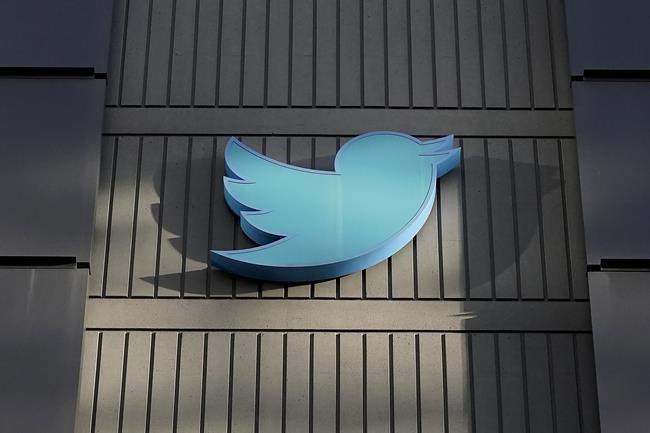TORONTO — Elon Musk's Twitter takeover should push users to think twice about how much time and trust they put in social media platforms, technology observers say.
Musk’s purchase of the San Francisco-based tech giant this week, his reputation for brash business moves and the uncertainty around his Twitter plans have some users wondering if they should leave the platform for good.
Whether people stick with Twitter or not, many feel the sale of Twitter should be seen as a lesson.
“It's a wake-up call for people to think about how much time and energy and intellectual capital do you want to invest in a single platform when it can be so disturbing?” said Courtney Radsch, a senior fellow at the Centre for International Governance Innovation, a think tank focused on technology and international governance.
Twitter has a reputation for hosting hateful posts and many users have complained about facing harassment and bots on the platform.
While Musk has mused about defeating spam bots and making algorithms open source to increase trust, he has also talked about championing free speech. Many believe this could result in him allowing controversial figures back onto Twitter and reducing moderation efforts.
How many of these ideas he will act on remains uncertain, but Radsch suggested it's an important reminder that a new leader can make radical changes to a social network.
"People have spent a lot of time on this platform, creating their brands or developing their presence," she said.
"We still have to see what his policies are going to result in... but I think that you could potentially see some people go off out of protest."
Radsch doesn't think a critical mass will leave because there are no other platforms that operate the same way or offer a similar experience, but she hopes many that do depart will realize how important data portability is.
Twitter users can download their data, but their networks and posted material can't easily be transferred to other platforms.
"But I think this type of angst (around Twitter) that is felt by many users, illustrates why that's such an important policy that needs to be developed sooner rather than later," Radsch said.
The Twitter sale might also be a reminder about the lack of privacy some platforms offer, she said.
Many, for example, are warning that Musk has the power to read anyone's direct messages.
"I don't think anyone has enough time to go through and read everyone's direct messages, but... without privacy protections... you should not expect that these platforms are there to maintain your security," Radsch said.
Such concerns have loomed since Twitter's board accepted Musk's US$44-billion bid to take over the social media platform in May.
The controversial Tesla and SpaceX leader, who has Canadian citizenship, later tried to back out of the deal.
Twitter sued Musk to force him to make the acquisition and a Delaware court ruled the deal must go through. It was finalized earlier this week.
Musk marked the occasion by changing his Twitter bio to "chief twit" and walking into the tech giant's San Francisco headquarters with a porcelain sink after posting “Entering Twitter HQ — let that sink in."
His first act was reportedly firing three top Twitter executives — chief executive Parag Agrawal, the company's chief financial officer and its top lawyer.
But his biggest act will likely be finding a way to make money on the investment while transforming the company to support some of his values like free speech, said Daniel Tsai, a technology lecturer at the University of Toronto.
"He's not in it to lose money and that means you can't make it a hellscape for advertisers," Tsai said.
Advertisers won't want to be on the platform, if their materials might be seen alongside hateful, violent or even controversial messages or if the user base sinks to an extremely low level.
Tsai said, "There's definitely a potential there for Musk to face a cancel culture response, if he allows the environment of Twitter to become so negative that his advertisers get targeted and drop Twitter like a stone."
This report by The Canadian Press was first published Oct. 28, 2022.
Tara Deschamps, The Canadian Press



